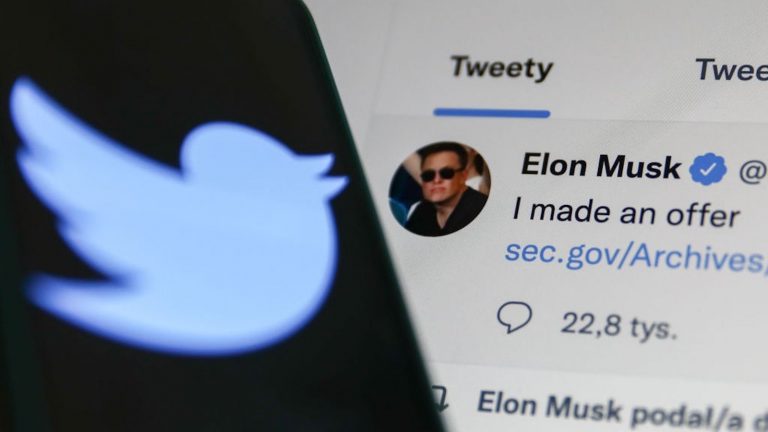Portrait of a strawman as a young rick: You may think you’re entitled to your opinion, but if you act on it in an illegal way, you no longer own your thoughts.
That’s the, er, opinion (more like pot-stirring postulation) of human-rights lawyer Susie Alegre. And while that’s just, like, her opinion, ma’am, her thread of thinking is the opening knot in an entire blanket of censorious suppression.
In a review of Alegre’s new book Freedom to Think: The Long Struggle to Liberate Our Minds, British journalist Steven Poole sums up his subject’s exposition thusly: “The online world, Alegre argues, harms our freedoms in many other ways, and is of a piece with the cruel history she sketches of phrenology, lobotomies, and CIA mind-control experiments.”
Comparing Facebook to white supremacy pseudoscience and MK-Ultra? I’m listening… OK, sorry, I want to but can’t. Mark Zuckerberg ain’t Mein Führer. Twitter scrolling might feel like a lobotomy, Facebook may inspire spitting flaps of outrage, Instagram may induce teen suicide, but these apps—or, really, digital forums hosting multimedia files—aren’t a grand goodthink conspiracy. They’re internet agoras populated by millions, overseen by progressively biased moderators.
Alegre’s concern isn’t necessarily that your Facebook-active grandpa is clicking PatriotNewsDaily.com links about election fraud or sharing Photoshopped memes of Biden with gangrene. Her concern is “surveillance advertising,” and how unwitting users are conned into buying $14-a-pop men’s shampoo (Hey—wait! They have cool aloe-scented for spring! *Click.* Well, why shouldn’t I pay $20 for two-day shipping. There are only 60 days left in the vernal season!). Alegre wants a legal proscription on everything—cookies, trackers, auto-emails, push reminders about non-existent items left in our Amazon carts—corporations use to monitor our online activity and feed us ads to part us from our money.
Alegre’s allergy to the arrows in marketing quiver is redolent of John Kenneth Galbraith’s characterization of advertising as mind control, or auto-suggestion influencing, with tailor-suited, whiskey-sipping, cigar-chomping ad barons plotting new ways to dupe us into buying a new washer-dryer combo even though we bought GE’s latest model last year. That line of thinking, with its vague Marxist tones, is paranoid armchair abstraction. There is no cahooting cabal pulling our strings, making us buy the latest sugar-dumpster-flavored Oreo. The fish peddler in Babylon is no different than the Facebook programmer facilitating Johnson & Johnson ads today—it’s all just commerce, the buyer’s will versus the seller’s acumen.
Social media has added sophistication to the ad man’s arsenal. But Alegre’s argument isn’t really about the evil puppeteers toying with our consumption impulse. She may inveigh against the vulturine predations of Alphabet Inc. execs, but the real pinch in her propagation is the weak-minded weekend Walmarter.
Like the democrat who sneers at popularly elected, but gritty-tongued politicians, Alegre alleges to be on the side of the consumer, but thoroughly distrusts the consumer’s judgment. So she scapegoats, pinning blame on digital mediators for society’s ills. She warns against “governments, companies, or people” that attempt to “manipulate our opinions.” But you don’t need an advanced degree in nouvelle critique from Sorbonne to pick up on the sub-thought to Alegre’s philosophy. Sorry, Derrida, ‘il n’ya a pas de hors-texte doesn’t apply. The motivating principle behind Alegre anti-free speech tract is one in the same of the justification behind social media moderation we saw in spades last week.
Billionaire iconoclast Elon Musk’s flirtation with buying Twitter did more to show the hand of the censor-triggered left than years of conservative caterwauling over tech suppression. The mere suggestion that the blue-bird app could be run by someone not immediately in favor of muting rightist dissent caused mass tachycardia among journalist and Democrat operatives. Musk has spent the past few months trollily suggesting he might stage a Twitter coup, ousting all the censorious busybodies. He finally made a bid gambit, offering to purchase the whole company above market valuation—so while Musk wouldn’t acquire the journo watercolor for a song, he’d inspire a chorus of lamentations.
And sing the progressive agonizers did. Anyone on the eastern seaboard on Maundy Thursday, especially along the Acela corridor, heard the audible screech of a cloistered village being ransacked. The pro-mod fulminations came swiftly without irony or self-awareness. “Today on Twitter feels like the last evening in a Berlin nightclub at the twilight of Weimar Germany,” NYU journalism professor Jeff Jarvis hyperventilated. Labor economist and seasonal Santa elf Robert Reich called Musk’s “libertarian vision” of a free internet “the dream of every dictator, strongman, demagogue and modern-day robber baron on Earth,” which makes “Jabberwocky” read like the Gettysburg Address. Katy Tur of NBC fretted about the “globe-altering consequences for just letting people run wild on [Twitter].” The Washington Post, which broke Watergate and reported widely on the Pentagon Papers, published an op-ed warning that “free speech” would be a blight on Twitter.
The hurler de résistance was easily Max Boot(licker) of the Post, who took a minute out of his busy warmongering schedule, to tweet: “For democracy to survive, we need more content moderation, not less.”
Got that? War is peace, freedom is slavery, and democracy is a few guys crusted to their computer chairs clicking Twitter’s backend “ban” button on anyone who posts #letsgobrandon.
The media meltdown was an acute display of territorialism. After unofficially dictating Twitter’s algorithm for a decade, liberal Twitter addicts made a clean breast of their proclivity for circumscribed debate. As Glenn Greenwald put it, the “corporate media’ was “forced to explicitly state what has long been clear: they not only favor censorship but desperately crave and depend on it.”
Narrative-tacking, shoring up priors, blocking off-scour, outré thoughts—this is the journalist’s job in the social media age. Reporting facts, transcribing full quotes, printing clean data, presenting unbiased accounts? Please! Those are outdated techniques that rub hard against the righteous “moral clarity” self-ordained press priests have accorded themselves. As with any spiritual cause, there must be excommunication, swift and unapologetic. Subversive tweeters must be strangled; meming heretics must be tossed in the Facebook hoosegow.
Enters the pip-squeak contrarian cuss: But, sir! But, sir! Free speech is never absolute—it exists on a spectrum, swaying between freer and limited. Engages in hammy tottering motion.
Rejoinder to my make-believe interlocutor: Nobody argues free speech should be completely unfettered, a wild verbal west of threats, fraud, and menacing. But the lofty noughties-era sentiment of the internet being a rule-less idea-multiplier, waxed romantically by the PayPal Mafia, has slowly morphed into a censor regime that, by any fair observation, promotes leftist ideology. To paraphrase Hannah Arendt, within the social technopoly’s realm, there are both dangerous posts, and posting itself is dangerous.
Alegre believes the marketing panopticon that social media has become is a danger to autonomy. The press Twitterati believe their medium is under threat from the slightest loosening of the moder-reins. These arguments are lodged under the heading of “democracy” and “free thought,” when they’re in favor of autocratic opinion-forcing.
Free speech means being able to view an ex-president’s unhinged tweets about Xeroxed ballots. It means viewing banner ads for a Samsung smart microwave after watching a video of some jackass kids melting iPhones in an old toaster oven.
Self-control is better learned through struggle than taught from on high. By treating us like determinative lemmings, the speech police is weakening our ability to discern verity from falsity.
Now if you’ll excuse me, I saw a pop-up for a disposable razor that owns the libs’ jugular. It cost $50 more than a sack of a dozen two-bladed peach-fuzz scythes at Target. But I need to shave, and have an aversion to liberalism, so this is right up my alley. Plus it comes with green-tea balm—balm!—and a toiletry purse indistinguishable from the three I already own. *Clicks “add to cart”.*
I’d rather risk my wife’s wrath over blowing our tight budget than have some nameless Menlo Park functionary say I can’t.














[…] about the triumph of neoliberal financialism over provincial patriotism? Or the futility of fighting over digital public squares? Or even how the MAGA boys might be, could be, may potentially be, back […]